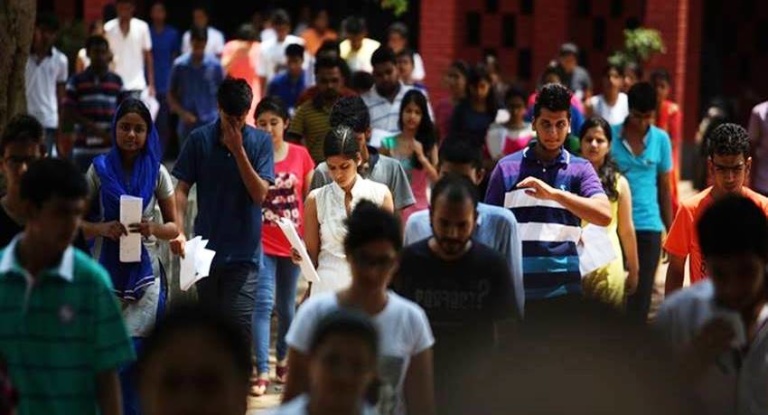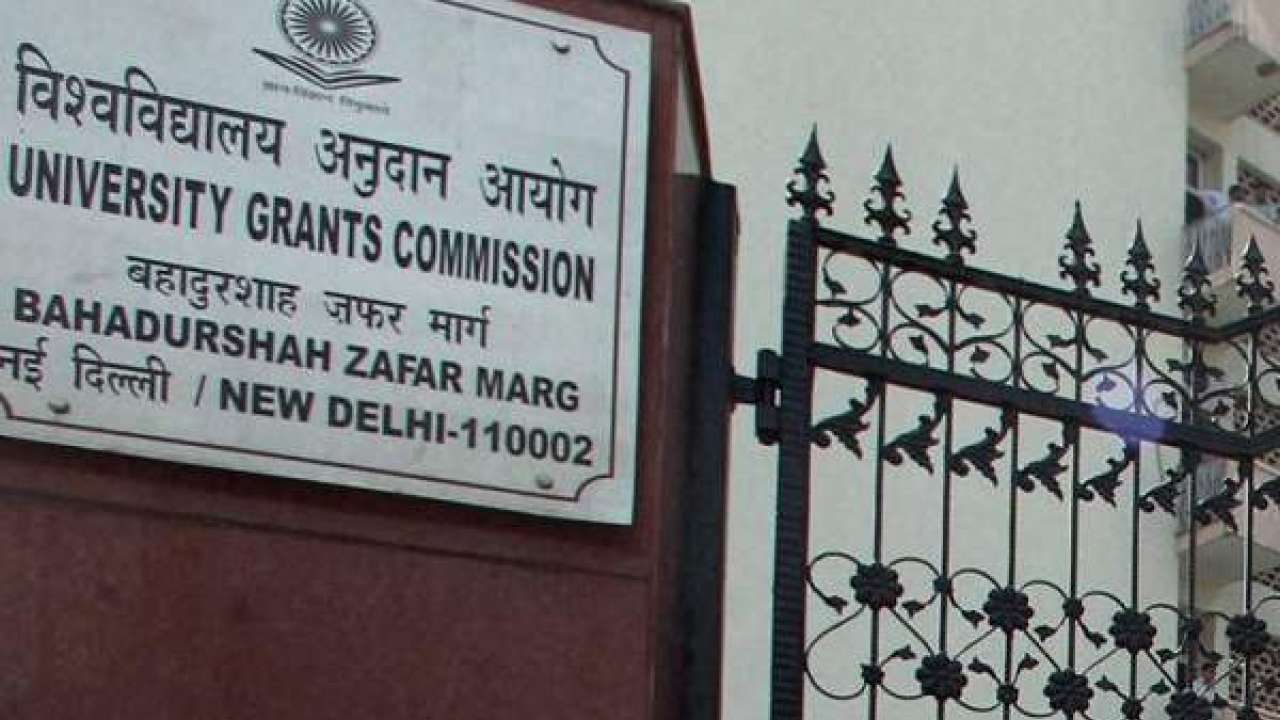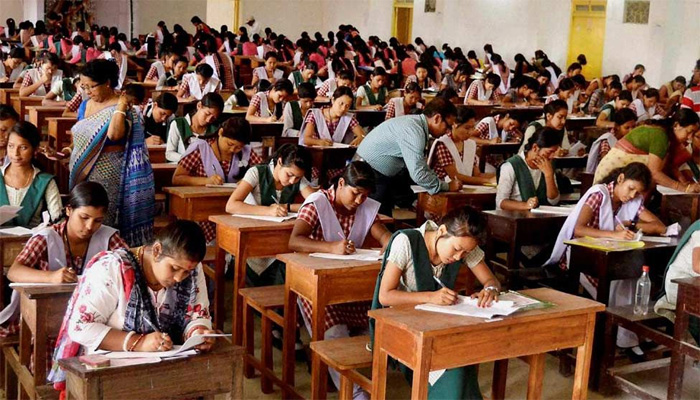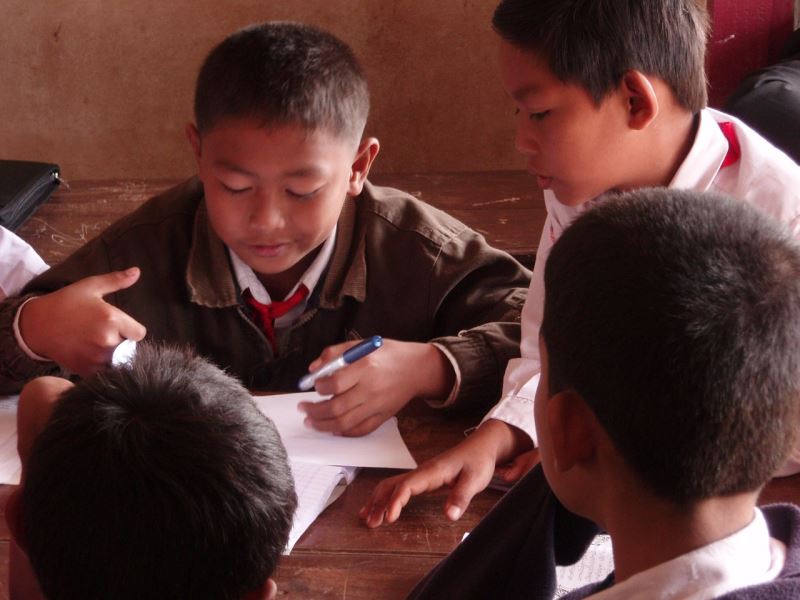The NET examination that took place on Sunday (5th Nov) is an examination to select the future generation of teachers at Indian universities and colleges. It is an ‘objective-type’ examination which supposedly tests both general teaching aptitude and subject knowledge of the candidate. Do the qualities and capabilities required for one to become a quality pedagogue really fall within the ambit of the examination or is it merely an assertion of the power of the ‘academic bureaucracy’ over the creativity and possibility of the vocation of teaching?
Manisha Jha is a Research Scholar – based in Secunderabad.
A teacher or pedagogue in the realm of humanities requires a certain set of skills to able to contribute productively to the vocation of teaching and make some amount of difference in the way that the new generations of learners negotiate and engage with the domain of social sciences in particular and the world in general. Does an examination such as the NET have the potential to determine this important set of skills, capacities and qualities required in order to achieve this? Yesterday, I found myself like the lakhs of students across the country in a NET examination hall trying to crack an objective type question paper whose result would determine whether I had it in me to become a good teacher in the field of humanities.

To be honest I deeply felt that an examination such as the NET was totally off tune with the notions of critical pedagogy, the spirit of dialogic thought and above all education as a democratic space where the co-existence of diverse and complex trajectories was not just possible but also celebrated. I grew up reading a wide array of literature and that perhaps became my perpetual tutor and companion reminding me time and again that the world could not be grasped in mere theoretical jargons and concepts that if once mastered could serve the purpose of knowledge for an eternity. Dostoyevsky reminded me that just like his ‘ridiculous man’ I was born to be free, creative and imaginative and that no regimented patterns could encage me for long, Ruskin Bond’s world of innocence granted me the lifelong treasure of childlike innocence and an inquisitively that knew no bounds and as I walked with the likes of Tagore’s Gora I knew that to have a mind of my own and a thought process that was distinctive and crystal clear I did not necessarily have to carry the burden of knowledge.
I completed my post-graduation and had accumulated certificates that looked attractive but deep down I knew that I carried within myself a restless spirit that wanted to desperately break free from the very ‘structured’ and ‘objective’ approaches of looking at the world and believed that some sort of anarchic freedom, the unbound skies of quest and creativity and the ability to look at the world beyond the binaries waited to be discovered. I realised yet again last morning that an examination such as the NET was against all the things that I cherish as a young learner and as someone who very passionately wants to jump into the vocation and contribute meaningfully to the discipline.
I was attacked by the iron cage of singular right answers when throughout my life I had celebrated the coexistence of myriad perspectives, I had to encircle correct answers in black ink to show my knowledge when I had grown up living in a milieu where subjectivity and passion were assets and not curses, I was strictly administered upon by appointed invigilators who ensured that I would not cheat or use unfair means to fill up my own OMR sheet- I wonder if this is the kind of treatment that educators of the future and the pedagogues of the nation should be meted out with? If the future generation of teachers are put under such regimentation and surveillance how is that they will go on to be educators who trust their students? How will they evolve as professionals in a milieu that doubts them all the time?
Further while I was attempting the paper last morning a question kept vibrating in mind and that was whether mass examinations such as the NET were really looking for quality teachers or where they going to select ‘academic bureaucrats ’ obsessed with singular and determined correct/objective answers. As a person passionate about the vocation of teaching/humanities is it enough for me to reproduce the publication dates of important books, crack mathematical sums in short time, memorise discrete definitions or reproduce list of universities credited A++ by the UGC? Ironically there are no questions that determine a candidate’s ability to think and debate, to engage productively with readings and literature or theoretical insights, to determine whether she can handle a classroom context that is diverse, vibrant and heterogeneous.
I am sure that anybody who has ever even been remotely familiar with the humanities knows that it demands not only the rote memorisation of facts but an ability of mature interpretation, analysis and critical engagement. As a teacher one is not going to be able to impose ideas as if they were one-dimensional facts and the idea of open, dialogic and accommodative spirit must certainly be cherished. I may be told by some academic bureaucrats that in a country so heavily populated and where a majority of institutions lack in quality- an examination such as the NET helps eliminate a large scale of insincere, weak candidates totally unsuitable for the vocation.
To them I would like to suggest that through the logic of an exam as alienating as the NET many creative and sensitive minds also do get eliminated just because they may not have a strong memory power to store thousands of discrete facts, many genuinely honest and well-meaning young people who would have given their heart and soul to the discipline and want to teach it at universities will get eliminated in the process and thus it would be wrong to believe that the NET selects the best and all those who get eliminated are worthless idiots. Life is not an OMR sheet that expects a singular correct answer nor can the violence of objectivity be imposed as a determining logic upon it. Individuals can be creative, sensitive, open-minded, experimental and passionate for the vocation of teaching and although they may not have a strong memory power that retains discrete facts they may do wonders when offered an opportunity. If we believe that Premchand or Tagore could crack the NET in Literature or that Erich Fromm or Ivan Illich could crack it in Psychology or Philosophy we have really missed the real fragrance of our education. If excellence is thought to be a mere product of mechanical memory and the vocation of teaching nothing more than the process off transferring data from a ‘supercomputer’ to a ‘small computer’ then examinations such as the NET will continue to determine our fate. Fortunately I have yet not lost the dream of a reformed education system which listens to our distinctive creativities and looks beyond and as someone who attempted the paper for the first time yesterday I know that my voice ought to be heard.
The New Leam has no external source of funding. For retaining its uniqueness, its high quality, its distinctive philosophy we wish to reduce the degree of dependence on corporate funding. We believe that if individuals like you come forward and SUPPORT THIS ENDEAVOR can make the magazine self-reliant in a very innovative way.












